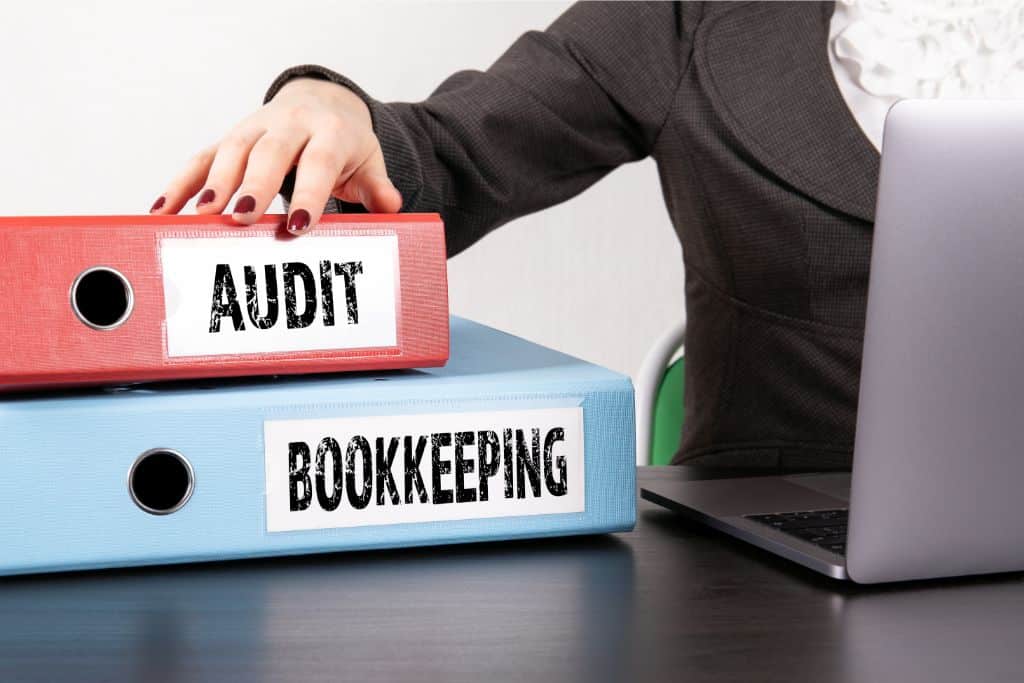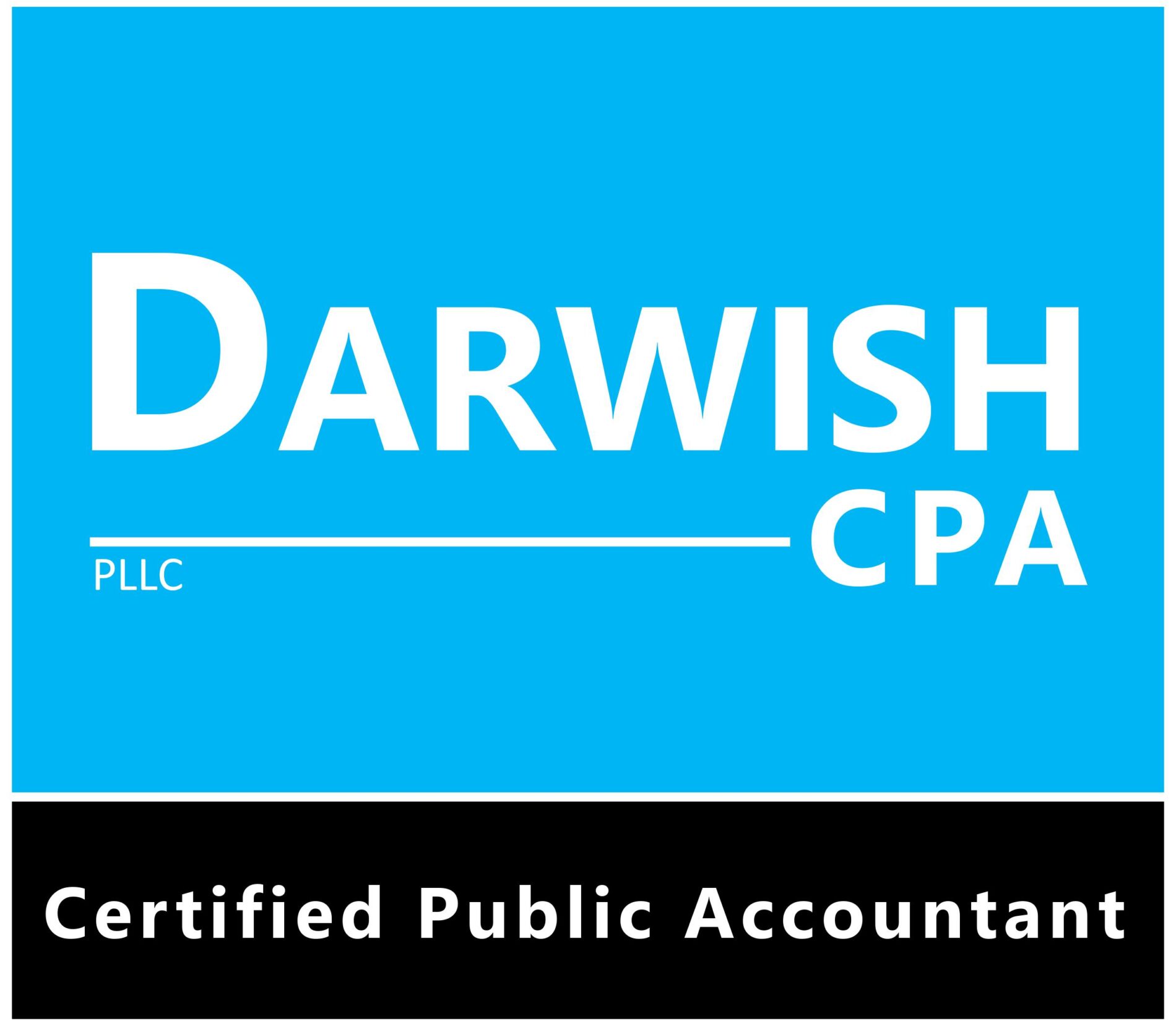What Is Bookkeeping?

Darwish CPA’s Ultimate Guide to What Is Bookkeeping: Why Every Business Needs It
What is bookkeeping? It’s the recording and organizing of all your business’s financial transactions. Think of it as keeping a diary of where your money comes from and where it goes. It might seem boring, but it’s very important for your business. Why? because keeping track of your money helps you see how your business is doing.
Without proper bookkeeping, it’s easy to lose sight of your finances. Imagine running a marathon without knowing the route—it would be confusing, right? That’s what running a business without bookkeeping feels like. You wouldn’t know if you’re making a profit or a loss. You might miss out on chances to save money or grow your company.
So, let’s dive into the world of bookkeeping together!
What is Bookkeeping? The Basics Unveiled
So, what is bookkeeping? It’s the process of recording and organizing your business’s financial transactions. Think of it like keeping a diary of all your money activities. Every time you earn or spend money, it gets recorded. This helps you keep track of your finances and see how your business is doing.
Why is bookkeeping important for your business? Imagine understanding your business’s health without knowing where your money is going or coming from. That would be confusing! Bookkeeping helps you avoid that confusion by keeping everything clear and organized. It helps you make smart financial decisions, stay on top of bills, and prepare for tax time.
Now, what does bookkeeping involve? It’s all about the details. Bookkeeping records daily financial transactions, like tracking expenses, sales, and payments. Here are some common bookkeeping tasks:
- Tracking Expenses: This means writing down every business cost, from office supplies to utility bills.
- Maintaining Ledgers: A ledger records all financial transactions. It’s like the heart of bookkeeping.
- Invoicing: Sending bills to your customers and recording when they pay.
- Reconciling Bank Statements: Making sure your records match what’s in your bank account.
Bookkeeping might seem repetitive, but keeping your financial records accurate is critical. Each small entry adds to a big picture of your business’s financial health. Without it, you’d be lost in a sea of numbers without knowing where you stand.
Bookkeeper vs Accountant: Clearing Up the Confusion
Let’s understand and differentiate accounting from bookkeeping. Bookkeeping is the recording of daily transactions, such as sales and payments. Bookkeepers keep these records clear and accurate.
Accounting takes these records and does more with them. Accountants use the information to create reports, check how the business is doing, and give advice. They also help with taxes and planning. So, bookkeepers handle daily details, while accountants use those details to help with big decisions and planning.
10 Difference Between Bookkeeping and Accounting
What They Do
- Bookkeepers record everyday transactions, such as sales and expenses. They also keep track of all money moving in and out of the business.
- Accountant: This person uses the bookkeeper’s data to create reports and give advice. They focus on understanding and summarizing the financial data.
Daily Work
- Bookkeeper: Handles daily tasks. They make sure all transactions are recorded correctly.
- Accountants look at the big picture. They use bookkeeper data to help with planning and making big decisions.
Skills Needed
- Bookkeeper: Needs to be detail-oriented and organized. They might have a certification but usually don’t need a degree.
- Accountant: Needs a degree in accounting or finance and often has a CPA certification. They have skills in analyzing and planning finances.
Reports They Create
- Bookkeeper: Can make basic reports, like income statements and balance sheets.
- Accountant: This person prepares detailed reports, including tax returns and annual financial statements, and ensures that reports follow the rules.
Planning Finances
- Bookkeeper: Focuses on recording transactions. They don’t usually handle financial planning.
- Accountant: Helps with planning, creating budgets, and making financial forecasts.
Software Used
- Bookkeeper: Uses simple software for daily tasks, like QuickBooks.
- Accountant: Uses advanced software for detailed analysis and reporting.
Handling Taxes
- Bookkeeper: Keeps track of tax-related transactions and records.
- Accountant: Prepares tax returns, ensures tax laws are followed, and advises on tax savings.
How Often They Work
- Bookkeeper: Works on a daily or weekly basis to keep records up-to-date.
- Accountant: Works on a monthly, quarterly, or yearly basis to analyze and report on the data.
Solving Problems
- Bookkeeper: Fixes issues with daily records and transactions.
- Accountant: Handles more complex problems, like issues with financial reports or strategic decisions.
Who They Work With
- Bookkeeper: Interacts with vendors, clients, and employees to manage financial records.
- Accountant: Works mostly with business owners and managers to provide financial advice.
Why Bookkeeping is Essential for Every Business
The difference between a bookkeeper and accountant is that bookkeepers are about keeping detailed records of all your business transactions. This means tracking every sale, expense, and payment.
Why is this so important? For one, it helps you keep accurate financial records. This way, you avoid mistakes that could cause trouble later. It’s like having a clear map for your business’s money – you might lose track without it.
Bookkeeping also helps with decision-making and planning. Accurate records allow you to see exactly where your money is going, making it easier to decide whether to buy new equipment or change your business strategy.
What’s the Difference Between Bookkeeping and Accounting?
Now, let’s clear up the difference between bookkeeping and accounting. While they are related, they are not the same.
Bookkeeping is about recording daily transactions. It’s like keeping a diary of all your financial activities. Accounting, however, looks at the bigger picture. It involves analyzing the records, making financial statements, and offering advice based on those records.
So, bookkeeping keeps track of the numbers, while accounting helps you understand what those numbers mean for your business.
What is Bookkeeping in Accounting?
What is bookkeeping in accounting? Is a bookkeeper an accountant? Bookkeeping is a key part of accounting. It provides the detailed records that accountants use to do their job.
In financial reporting, bookkeeping gives accountants the data they need to create reports. These reports help you understand how your business is doing and guide your future decisions. Without good bookkeeping, accountants would have no accurate data to work with.
Bookkeeping vs Accounting: Which One Do You Need?
When managing your business finances, you might wonder whether you need bookkeeping or accounting. Let’s clear up what each one does and help you decide which is best for your needs.
When to Prioritize Bookkeeping and When to Involve Accounting
Deciding when to focus on bookkeeping and when to use accounting depends on your business needs.
- Start with Bookkeeping: Bookkeeping is key to tracking daily transactions. It helps ensure that all financial records are correct and up to date.
- Bring in Accounting: Consider accounting when your business grows and you need more insights into your finances. An accountant can help with financial planning, report preparation, and understanding your numbers.
Is a Bookkeeper an Accountant?
You might ask, “Is a bookkeeper the same as an accountant?” The answer is no. There’s a difference between bookkeeping accounting and accountancy as they have different jobs:
- A Bookkeeper keeps track of daily financial records.
- An Accountant uses these records to create financial reports, give advice, and help with taxes.
A bookkeeper handles routine tasks like recording transactions, while an accountant is useful for more complex tasks like analyzing data and planning for the future.
Bookkeeping Versus Accounting: Practical Examples
Here’s how to see the difference:
- Bookkeeping Example: Suppose you run a small bakery. You need to record each sale and expense every day. A bookkeeper will manage these daily entries to keep your records accurate.
- Accounting Example: You must prepare a tax return and review your financial results at tax time. An accountant will use the records from your bookkeeper to create reports and help you with taxes.
Bookkeeping Tools and Techniques
If you’re wondering what bookkeeping is and how to use it well, the right tools can make a big difference. Here’s a look at some popular bookkeeping tools and how they help.
Account Bookkeeping Tools
Using software can make bookkeeping much easier. Here are two popular tools:
- QuickBooks: This software helps you track money coming in and going out. It can also create invoices, handle payroll, and make reports. It’s great for small—to medium-sized businesses.
- Xero: Xero is similar to QuickBooks. It connects with other apps and helps you manage your finances from anywhere.
These tools make bookkeeping more efficient by automating tasks. For example, they can import and sort bank transactions automatically, saving time and reducing mistakes.
Importance of Using Technology
Technology is very helpful in bookkeeping. It makes tasks faster and easier. For example, software can create reports, track spending, and remind you about due payments.
Using technology saves time and helps avoid errors. Automation handles routine work, so you can focus more on running your business.
Accounting & Bookkeeping Integration
Some tools offer both accounting and bookkeeping features. For instance, QuickBooks and Xero manage daily financial tasks and also help with detailed reports. This makes it easier to handle both bookkeeping and accounting in one place.
With these tools, you can track your income and expenses, prepare for taxes, and see how your business is doing. This makes it simpler to understand your finances and make better decisions.
Common Bookkeeping and Accounting Mistakes to Avoid
Understanding what is bookkeeping is essential for any business. Good bookkeeping keeps your finances in order and helps things run smoothly. But mistakes are common. Let’s go over some common errors and how to avoid them.
Common Errors in Bookkeeping
Missing Transactions
It’s easy to forget to record transactions, especially small ones. Every purchase and sale should be noted to keep your books accurate. If you miss recording even a few transactions, your financial records can become incomplete. Over time, these missed entries can add up and create big problems.
Misclassification of Expenses
Placing expenses in the wrong categories can confuse them. For example, don’t put office supplies under travel expenses. This mistake can mess up your financial statements and lead to problems with tax filings. Each expense should be categorized correctly to keep your records clean and accurate.
Not Reconciling Accounts
Regularly reconciling your accounts helps catch mistakes. Reconciliation means checking your internal records against external statements (like bank statements) to ensure they match. If you skip this step, you might miss discrepancies that could affect your financial reports.
Ignoring Receipts
Receipts are important. They provide proof of transactions and are essential during audits. If you don’t keep receipts, you might miss important documentation needed to verify transactions. Always save and organize receipts to support your financial records.
Delaying Bookkeeping Tasks
Putting off bookkeeping tasks can lead to mistakes. If you delay, you might forget important details. Regularly updating your books helps keep your records accurate and makes it easier to manage your finances. Try to set aside time each week for bookkeeping tasks.
Overlooking Small Expenses
Small expenses, like office snacks or minor supplies, can add up. Ignoring them can create gaps in your financial records. Even though these expenses seem minor, they can impact your overall budget and financial reports. Make sure to record all expenses, no matter how small.
Failing to Back Up Data
Data loss can happen due to technical issues or accidents. Not backing up your bookkeeping data can result in losing important information. Regularly backing up your data ensures that you have a secure copy of all your financial transactions.
Inconsistent Record-Keeping
Keeping records inconsistently can lead to confusion and mistakes. Stick to a consistent method for recording transactions. This helps ensure accuracy and makes reviewing and managing your financial data easier.
Not Separating Personal and Business Finances
Mixing personal and business finances can complicate your bookkeeping. It’s important to keep these finances separate. This separation makes it easier to track business expenses and avoid potential legal issues.
Tips to Avoid These Mistakes
- Use Accounting Software
Accounting software can automate many bookkeeping tasks, reducing errors. It can also help track receipts and categorize expenses. Many software options offer features like automatic bank feeds and real-time financial reports, which make bookkeeping easier.
- Regular Reviews
Set aside time each week to review your books. Regular reviews help catch and correct errors early. This practice also helps identify discrepancies and ensures your financial data is accurate.
- Keep Receipts Organized
Use digital tools to store and organize receipts. This makes it easier to find and manage receipts when needed. Apps that let you scan and store receipts can help keep your records in order.
- Learn the Basics
Knowing the basics of what is bookkeeping can be very helpful. Even if you hire a professional, understanding the fundamentals helps you oversee their work effectively. Basic knowledge of bookkeeping principles helps you understand financial reports and manage your business finances better.
- Set Up a System
Create a systematic approach to bookkeeping. Whether you use software, hire a professional, or keep a manual ledger, having a consistent system helps ensure accuracy. A good system makes it easier to manage and review your financial records.
- Stay Current with Tax Laws
Tax laws can change frequently. Keeping up with the latest tax rules helps you stay compliant and avoid penalties. Regularly consulting with a tax professional can help you understand and adapt to any changes in tax regulations.
- Seek Professional Help
If bookkeeping feels overwhelming, consider hiring a professional. A bookkeeper to accountant can help you avoid common mistakes and maintain accurate records. Professionals can also offer valuable advice and insights into your financial data.
Darwish CPA – Offering Expert Insights Into What Is Bookkeeping
At Darwish CPA, we know bookkeeping can be confusing for many business owners. But don’t worry! We’re here to explain what is bookkeeping and why it’s so important for your business.
Why Every Business Needs Bookkeeping
You might ask, why is bookkeeping so important? Here are a few key reasons:
- Accurate Financial Records: Bookkeeping keeps your financial records accurate and up-to-date. This is important for making smart business decisions.
- Tax Preparation: With organized financial records, tax time is easier. You’ll have all the information you need to file your taxes correctly and on time.
- Financial Analysis: Detailed financial records help you understand your business’s performance and find areas to improve.
- Compliance: Proper bookkeeping helps your business follow financial laws and avoid legal problems.
How Darwish CPA Can Help
At Darwish CPA, we offer expert insights into what is bookkeeping and provide various services to help your business succeed.
- Bookkeeping Services
Our team of skilled professionals handles all your bookkeeping needs. We record all your financial transactions, ensuring your records are always accurate and current.
- Financial Reporting
We create detailed financial reports, giving you a clear view of your business’s financial health. These reports include profit and loss statements, balance sheets, and cash flow statements.
- Tax Preparation and Planning
Tax time can be stressful, but with Darwish CPA, it doesn’t have to be. We prepare and file your taxes accurately and on time, and we offer tax planning services to help you pay less in taxes.
- Payroll Services
Managing payroll can be time-consuming and tricky. We handle all parts of payroll processing, ensuring your employees are paid correctly and on time.
- Consulting Services
Do you need advice on improving your financial management? Our consulting services provide expert guidance on making smart decisions and growing your business.

Conclusion – The Power of Effective Bookkeeping
Bookkeeping is a key part of running a successful business. It keeps your financial records organized, helps with tax preparation, and provides valuable insights into your business’s performance. At Darwish CPA, we offer expert insights and top-notch bookkeeping services.
So, if you’re wondering what is bookkeeping and how it can help your business, look no further. Darwish CPA is here to help. Contact us today and let’s help your business grow!
FAQs
What is bookkeeping?
Bookkeeping is keeping track of all the money your business spends and earns. It includes recording sales, purchases, and payments.
Why do I need bookkeeping for my business?
Bookkeeping helps keep your financial records accurate and organized. This is important for making smart decisions, filing taxes, and monitoring your business’s performance.
What services does Darwish CPA offer for bookkeeping?
Darwish CPA provides services like recording transactions, preparing financial reports, handling taxes, managing payroll, and offering financial advice.
How does good bookkeeping help with taxes?
Good bookkeeping keeps your records in order, making it easier to file taxes correctly. It also helps find tax savings and avoid mistakes.
What is QBO in accounting?
QBO, or QuickBooks Online, is a cloud-based tool for managing your business finances. It helps with tracking expenses, creating reports, and handling payroll.
Understanding what is bookkeeping is crucial for your business success. Let Darwish CPA handle your bookkeeping needs with expert care. Contact Darwish CPA today and see how we can help your business thrive!
Also Read:
What is a Bookkeeper Salary? The Inspiring Journey to Financial Success Darwish CPA!
Avoid Mistakes with Darwish CPA: The Hidden Costs of Ignoring Third Party Accounting Services
Simplifying Financial Management for Business Success with Darwish CPA
Bookkeeping doesn’t have to be daunting. With Darwish CPA, it’s a pathway to growth. Our services offer financial accuracy and strategic insights for smarter business decisions. So, whether you’re a start-up or an established business, Darwish CPA is ready to take the financial reins. Call us at (972) 797-9505 or use our online form. Let’s make financial management a breeze and propel your business toward success.



